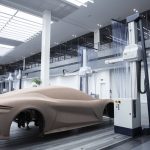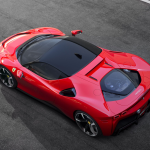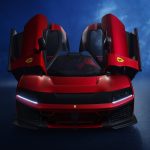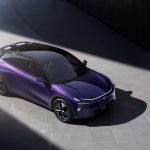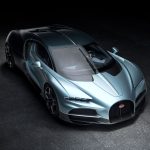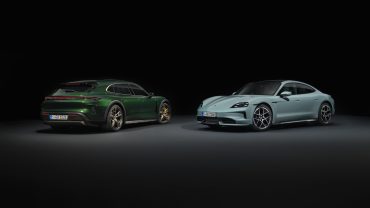
- Electric Vehicles
- EV Transition
- Mobility Tech
Porsche Scales Back EV Ambitions as Profit Outlook Collapses
6 minute read

Luxury automaker Porsche scales back electric vehicle plans amid weakening premium EV demand and profit pressures
Key Takeaways
- Porsche shares plummet 7% in Frankfurt trading after the luxury carmaker delays electric vehicle rollouts and slashes its 2025 profit margin outlook to just 2%, down from the previous 5-7% range.
- €5.1 billion hit to Volkswagen as Porsche’s majority shareholder faces massive charges from the strategic pivot, with both companies revising profit margin guidance downward amid weakening luxury EV demand.
- Ultra-luxury SUV strategy reversed as Porsche’s planned all-electric K1 model above the Cayenne will now launch initially with combustion and hybrid powertrains only, marking a significant shift from the company’s aggressive EV timeline.
Introduction
Porsche abandons its aggressive electric vehicle strategy, triggering a market selloff that erases nearly 7% of the German luxury carmaker’s value in early Frankfurt trading. The company delays multiple all-electric model launches and cuts its 2025 profitability outlook by more than half, citing weakening demand for high-end EVs in key markets.
The strategic reversal affects the entire Volkswagen Group ecosystem. Volkswagen, which holds 75.4% of Porsche, faces a €5.1 billion operating profit hit and drops more than 5% alongside Porsche SE shares. This marks Porsche’s fourth downward guidance revision in 2025, signaling deeper challenges in the luxury electric vehicle transition.
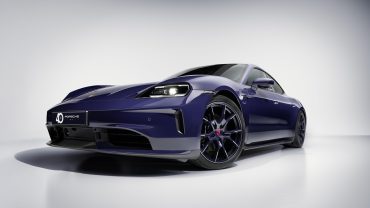
Key Developments
Porsche restructures its product roadmap around a more conservative approach to electrification. The company postpones several planned all-electric models and abandons development of a dedicated next-generation EV platform that was meant to underpin future launches.
The most significant change involves the ultra-luxury SUV positioned above the Cayenne, internally known as the K1. Originally planned exclusively as a fully electric model, it will now initially debut with combustion and plug-in hybrid powertrains only. The company confirms that both the Panamera and Cayenne will continue with combustion and hybrid power well into the 2030s.
CEO Oliver Blume, who also leads Volkswagen, attributes the pivot to “massive changes within the automotive environment” and notes a significant decline in demand for high-end EVs. The company incurred an €800 million restructuring expense and now forecasts its automotive EBITDA margin at 10.5-12.5%, down from the previous 14.5-16.5% guidance.
Market Impact
European automotive stocks react sharply to Porsche’s announcement. Porsche shares drop 7.3% in Frankfurt trading, while Volkswagen falls 5.7% and Porsche SE declines 5.4%. The selloff reflects immediate investor concern over profitability and the broader implications for luxury EV adoption.
The financial impact extends beyond share prices. Porsche’s operating profit faces potential reductions of up to €1.8 billion in 2025, while Volkswagen confronts additional headwinds from US tariffs that cost the group €1.3 billion in the first half of 2025. The company’s return on sales guidance drops to a maximum of 2%, representing the steepest revision in recent years.
Broader market sentiment toward European automakers weakens as investors reassess EV transition timelines and profitability assumptions across the sector.
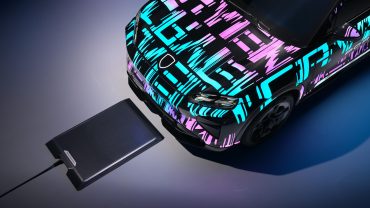
Strategic Insights
Porsche’s pivot reflects a fundamental recalibration in luxury automotive strategy. The company shifts from aggressive electrification toward a dual-path approach that prioritizes internal combustion engines and plug-in hybrids for key models. This hedging strategy aims to preserve premium brand identity while meeting diverse customer preferences.
The move delays Porsche’s earlier target of 80% EV sales by 2030, acknowledging that luxury customers continue to value performance and brand heritage associated with combustion engines. Affluent buyers demonstrate slower adoption rates for electric vehicles compared to mass-market segments.
Global pressures amplify the strategic challenges. Rising US import tariffs, a cooling Chinese luxury market, and persistent margin pressure from unprofitable EVs create a complex operating environment. According to Tech Icons previous reports, ongoing discussions about reducing US auto import tariffs from 27.5% to 15% could take weeks to conclude.
Expert Opinions and Data
Blume emphasizes the long-term nature of the transition ahead. “We have made key strategic decisions. Now it’s time to put them into action. It’s going to be a tough and long road, and it will demand our full focus and strong effort,” he states during a joint analyst call.
The CEO expresses hope for regulatory flexibility from the European Union regarding its goal of 100% CO2 emissions reduction for new cars and vans by 2035. This regulatory uncertainty adds complexity to long-term product planning across the industry.
Analysts largely view the strategic shift as pragmatic rather than crisis-driven. The recalibration aligns with actual luxury customer demand patterns, though it raises questions about long-term regulatory risks if EV adoption accelerates globally. Historical data suggests market reactions to earnings misses typically fade within two weeks as performance aligns with broader sector trends.
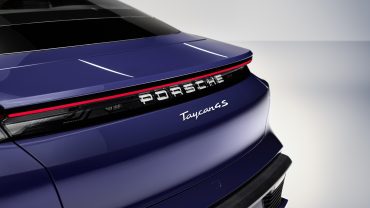
Conclusion
Porsche’s EV delay and profit guidance cuts represent a significant strategic recalibration that prioritizes near-term profitability over aggressive electrification timelines. The company accepts immediate financial pain through restructuring costs and margin compression while positioning for potential long-term stabilization.
The developments highlight broader challenges facing traditional automakers as they balance heritage brands, profitability pressures, and the complex transition to electrification. Porsche’s flexibility in adjusting its strategy reflects market realities, though repeated guidance revisions raise investor confidence concerns across the luxury automotive sector.
